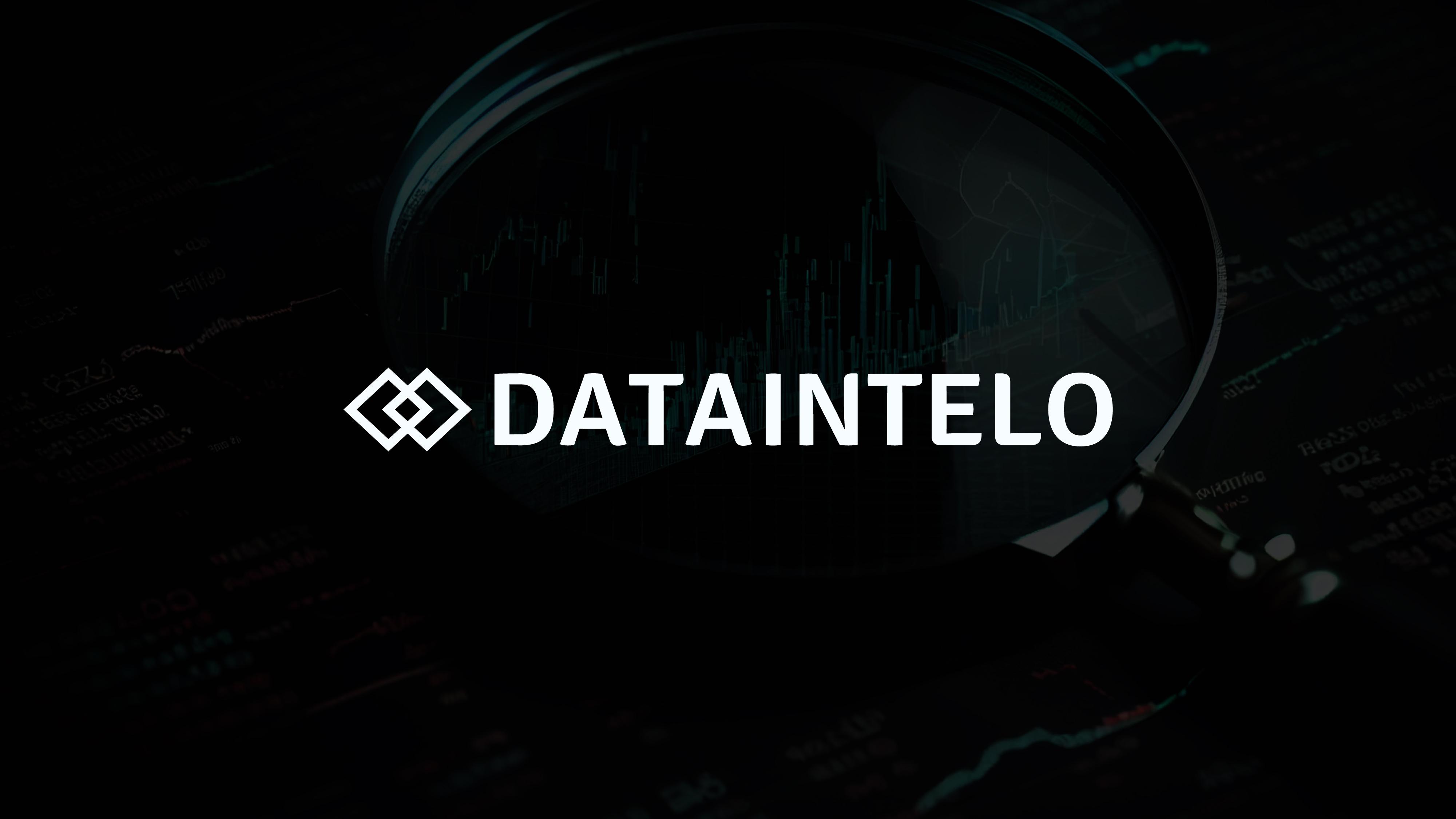Published by Dataintelo
The Big Data Analytics in Healthcare Market is experiencing a remarkable surge as the global healthcare sector embraces digitalization and data-driven decision-making. With the rapid integration of electronic health records (EHRs), telemedicine, wearable devices, and AI-powered diagnostics, healthcare systems are increasingly relying on big data to enhance outcomes, streamline operations, and lower costs.
Big data analytics empowers providers and researchers with actionable insights by processing vast volumes of patient information, treatment records, genomics data, and real-time health monitoring. As healthcare shifts toward personalized and value-based care, the need for predictive analytics, clinical risk modeling, and population health management tools continues to expand globally.
Industry experts project significant market acceleration in the coming years as governments, insurers, and private institutions prioritize digital health strategies to improve efficiency and patient care.
Request a Sample Report for data-driven forecasts, segment insights, and in-depth market analysis:
https://dataintelo.com/request-sample/72084
Key Drivers Fueling Market Expansion
The growth of the Big Data Analytics in Healthcare Market is primarily fueled by:
-
Digitization of Healthcare Systems: Hospitals and clinics are increasingly digitizing patient records and care workflows, generating enormous datasets.
-
Rising Demand for Cost-Effective Care: Big data helps reduce readmissions, optimize resource allocation, and improve diagnostic accuracy.
-
Growth of Telemedicine and Wearables: These technologies continuously generate real-time health data that require robust analytical solutions.
These drivers are helping stakeholders make informed decisions, minimize risks, and enhance clinical efficiency.
Market Restraints and Challenges
Despite its rapid growth, the market faces notable restraints:
-
Data Security & Privacy Concerns: Handling sensitive health data requires strict compliance with regulatory standards like HIPAA and GDPR.
-
Lack of Skilled Professionals: A shortage of data scientists and analysts with healthcare domain expertise hinders effective implementation.
-
High Initial Investment: Infrastructure setup for big data platforms involves significant capital expenditure, especially in underdeveloped regions.
Addressing these challenges through policy support and investment in workforce development is essential for sustainable market growth.
View Full Report for a comprehensive analysis of market restraints, risks, and solutions:
https://dataintelo.com/report/big-data-analytics-in-healthcare-market-report
Unlocking Market Opportunities
Several transformative trends are creating lucrative opportunities within the Big Data Analytics in Healthcare Market:
-
Personalized Medicine: Big data supports genomics and pharmacogenomics research, enabling tailored treatment strategies.
-
AI-Driven Predictive Analytics: Machine learning models are being deployed to forecast disease progression and prevent hospitalizations.
-
Healthcare Fraud Detection: Advanced analytics tools help identify irregular billing patterns and fraudulent insurance claims.
These advancements are paving the way for enhanced patient care, operational transparency, and cost savings.
Check Out the Report to explore strategic opportunities and growth potential across regions:
https://dataintelo.com/checkout/72084
Market Size and Growth Projections
According to Dataintelo’s latest findings, the Big Data Analytics in Healthcare Market was valued at USD XX billion in 2023 and is projected to grow at a CAGR of X.X% from 2024 to 2032. This growth trajectory is attributed to increasing digital adoption and the need for evidence-based care.
Key market developments include:
-
Expansion of cloud-based analytics platforms for remote accessibility
-
Growing investments in AI and machine learning tools for clinical research
-
Integration of big data solutions in public health and pandemic preparedness strategies
These developments ensure a favorable outlook for market players and healthcare organizations alike.
Regional Market Highlights
The adoption of big data analytics in healthcare varies significantly across global regions:
North America
-
Leading the market due to robust IT infrastructure and regulatory support
-
Strong adoption in hospitals, payers, and research institutions
Europe
-
Rapid growth driven by public-private partnerships and eHealth initiatives
-
High emphasis on patient data privacy and interoperability
Asia-Pacific
-
Fastest-growing region with expanding healthcare infrastructure and digital health programs
-
Governments promoting health-tech startups and innovation
Latin America & MEA
-
Gradual adoption supported by pilot programs and global health partnerships
-
Increasing use of analytics in epidemic tracking and resource optimization
Request a Sample Report to view region-specific projections and technological trends:
https://dataintelo.com/request-sample/72084
Segment Analysis: Key Applications and Deployment Models
The Big Data Analytics in Healthcare Market is segmented across several crucial categories:
By Application:
-
Clinical Analytics
-
Financial Analytics
-
Operational Analytics
-
Population Health Analytics
By Deployment Mode:
-
On-Premise
-
Cloud-Based
-
Hybrid Systems
By End-User:
-
Hospitals & Clinics
-
Insurance Companies
-
Research Organizations
-
Government Health Agencies
This segmentation reveals that cloud-based analytics and clinical applications are among the fastest-growing areas, driven by scalability and real-time decision-making needs.
Industry Trends Shaping the Future
Emerging trends are redefining the competitive landscape and innovation roadmap for healthcare analytics:
-
Real-Time Monitoring & Alerts: Data-driven alerts for critical vitals improve emergency response times.
-
Interoperable Health Systems: Emphasis on data integration from multiple sources like EHRs, imaging, and wearable devices.
-
Blockchain Integration: Enhancing data security and traceability in healthcare transactions.
These trends are expected to drive widespread adoption and support advanced health interventions.
View Full Report for detailed insights into emerging technologies and industry disruptors:
https://dataintelo.com/report/big-data-analytics-in-healthcare-market-report
Market Dynamics: Competitive and Policy Landscape
The market is influenced by dynamic forces including regulatory frameworks, tech evolution, and strategic collaborations:
-
Increasing global emphasis on universal healthcare access and data equity
-
Proliferation of AI startups and cross-industry partnerships
-
Shifts toward value-based care models across major healthcare systems
Dataintelo’s research offers a deep dive into these dynamics, highlighting potential risks and strategic responses for market participants.
Check Out the Report for expert insights and actionable intelligence on market dynamics:
https://dataintelo.com/checkout/72084
Conclusion
The Big Data Analytics in Healthcare Market is redefining how healthcare systems operate, analyze, and deliver care. By unlocking real-time insights, improving clinical outcomes, and enhancing cost-efficiency, big data stands at the forefront of modern healthcare transformation.
As digital health technologies advance and policy frameworks evolve, the integration of big data analytics will become central to achieving equitable, patient-centered, and sustainable healthcare globally. With Dataintelo’s comprehensive report, industry stakeholders are well-equipped to harness the full potential of this rapidly growing sector.
